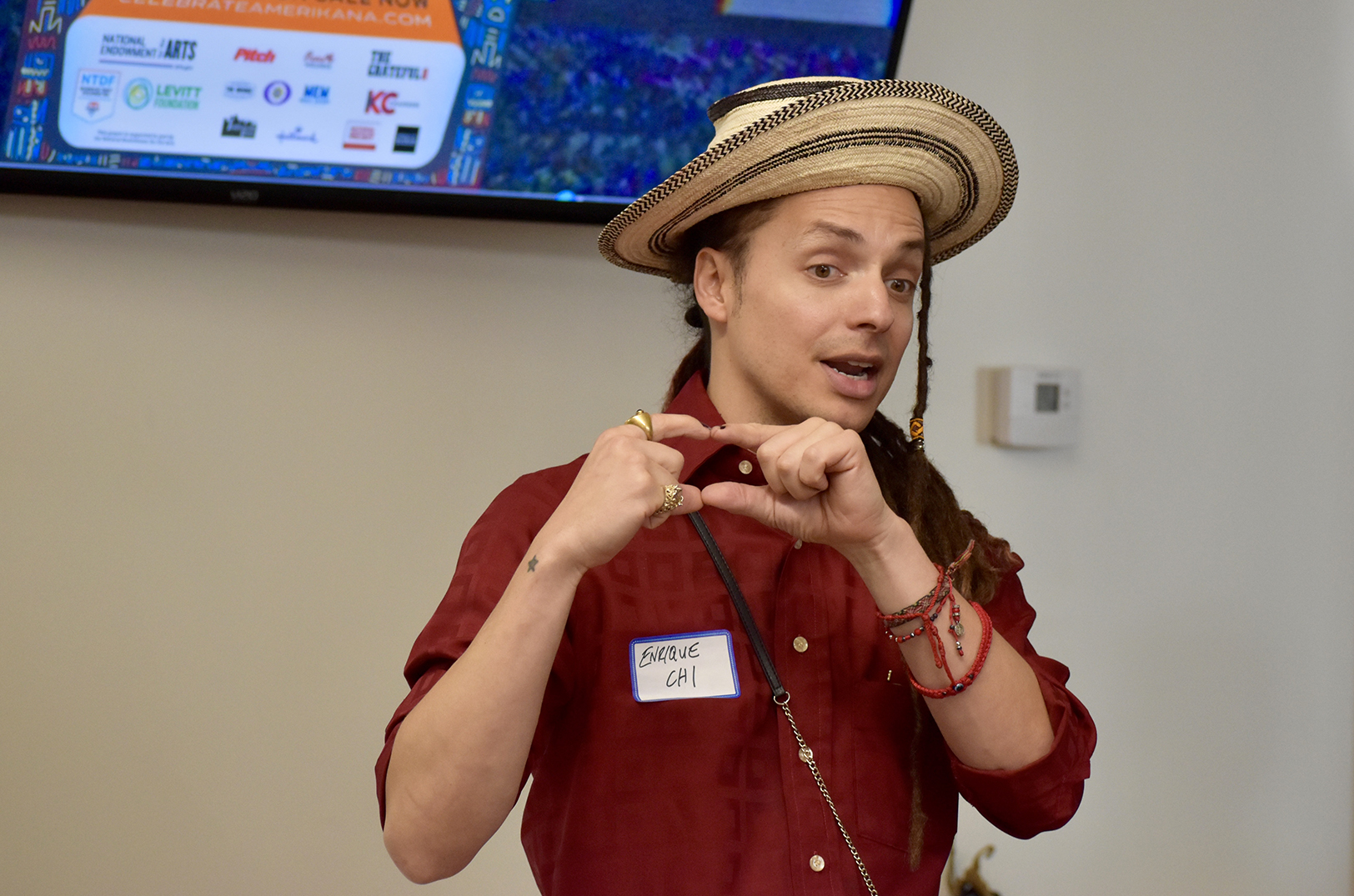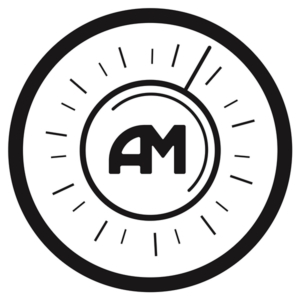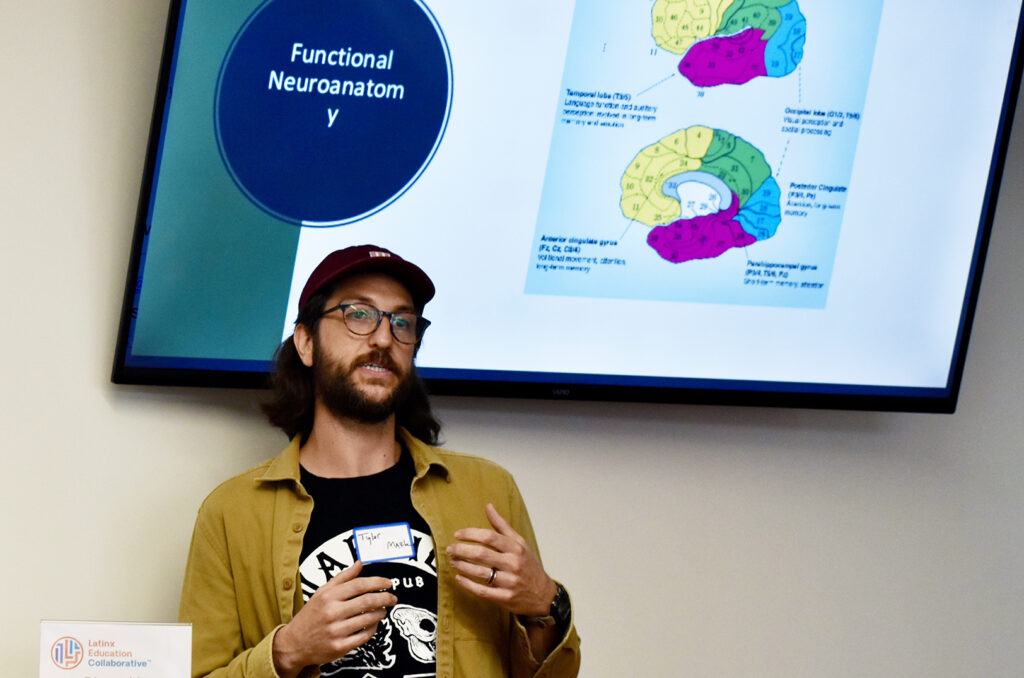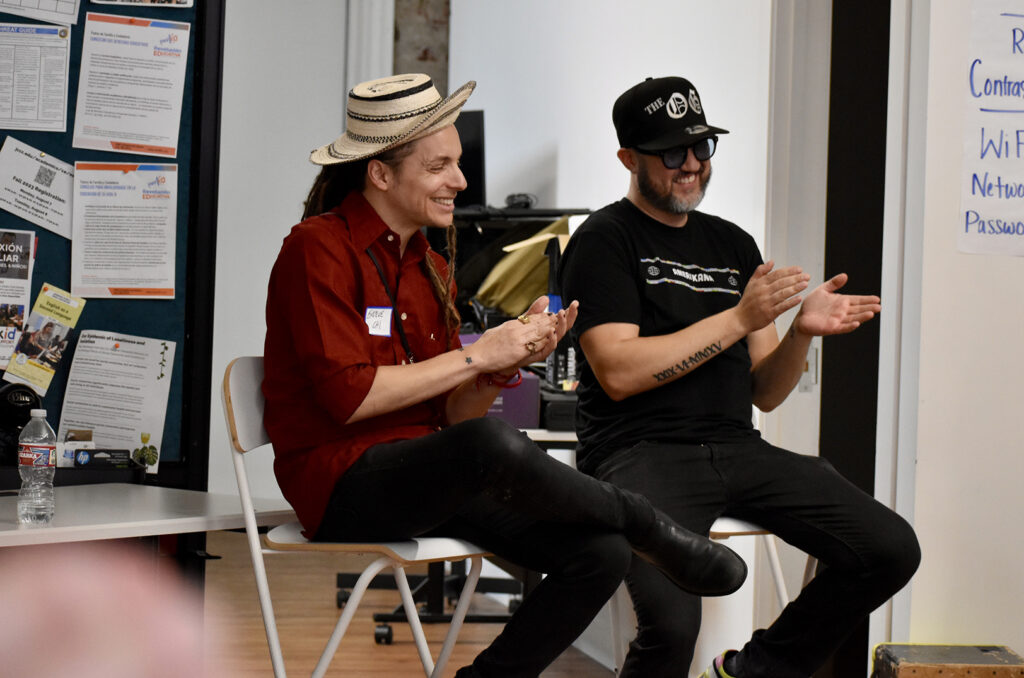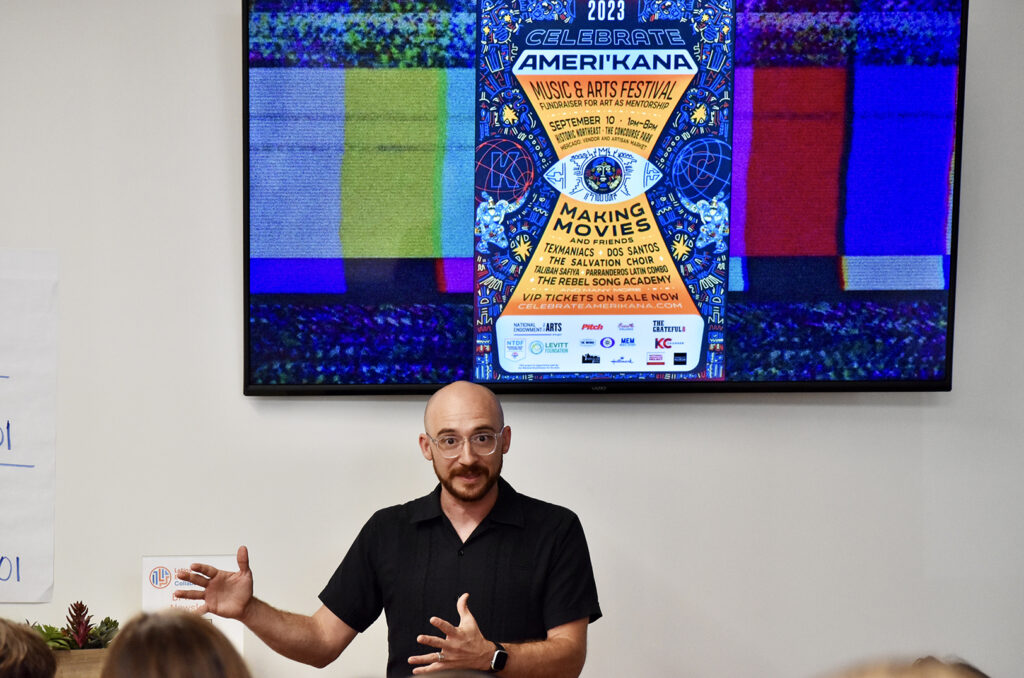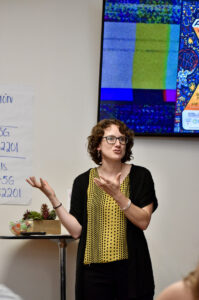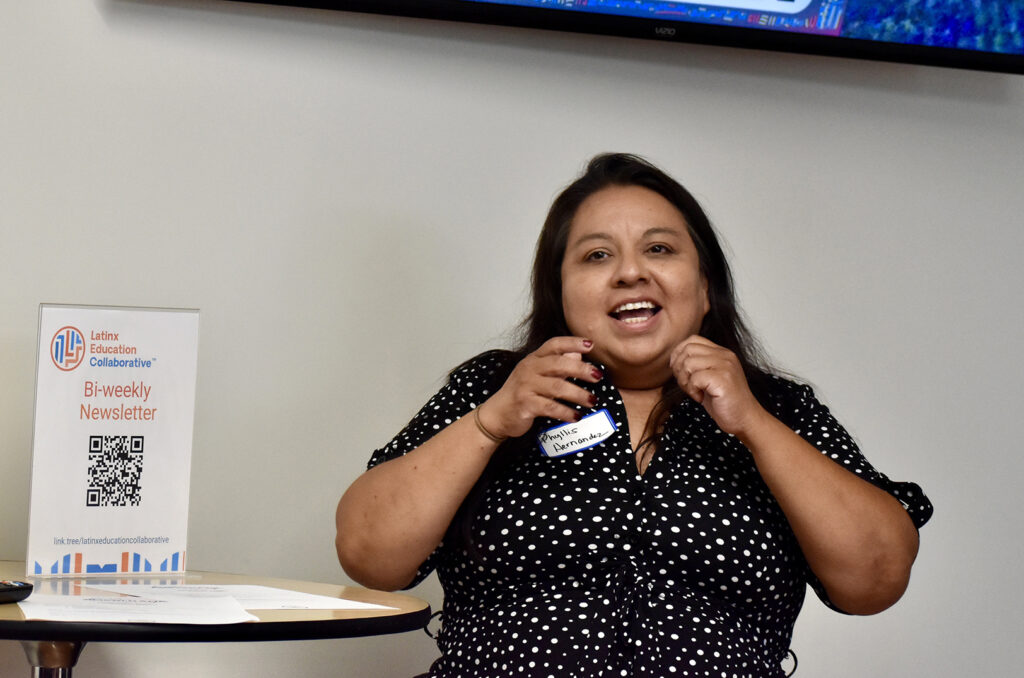A Kansas City non-profit’s punk rock move to improve teens’ mental wellness through song is getting an extra jolt from a $100,000 gift — funds that support the organization as it plans an upcoming music and arts festival in the city’s Northeast, as well as promotes scientific efforts to show how rock and roll impacts the kids’ brains for the better.
Part of Art As Mentorship’s “Make Noise” fundraising campaign — which already received $25,000 locally from the Hall Family Foundation — the $100,000 comes from One Nation/One Project, a national arts and wellness initiative designed to activate the power of the arts to repair the social fabric and heal communities that is funded by the World Health Organization, the National League of Cities, and the Rockwell Group.
“They’re investing real dollars into communities,” said Enrique Chi, frontman for the Latin Grammy-nominated indie rock band Making Movies and founder of the Northeast Kansas City-based Art As Mentorship.
Art As Mentorship — which aims to provide an inclusive community where under-represented artists are empowered to write their own success stories — attracted the attention of One Nation/One Project through a pilot study it conducted with Tyler Mark, a neurofeedback technician at Connect Neurofeedback, scanning the brains of five students before they started work with the nonprofit’s Rebel Song Academy program and after to show the impact.
Chi wanted to add scientific evidence to the anecdotes already gathered by Art As Mentorship, he said during an event at Revolución Educativa, the 501(c)(4) that launched the Latinx Education Collaborative (LEC) in 2018, where he appeared alongside Mark and community leaders.
“We’ve seen kids change,” Chi continued. “We’ve had families and parents say, ‘Oh man, my young person has been radically changed by this.’ We started to want to quantify that because I started realizing that the United States isn’t so great about funding arts. It isn’t so great about funding diverse communities. But there’s room when you start to prove that it can create wellness.”
“I think that the future is bright for music in this country if we can wrap our head around how profound it is for all of us — not just anecdotally — but even scientifically,” he added.
Mark — who is working on the study through the London King’s College Champions for Change project — shared that he performed EEG scans on the brains of the students while they were laying still with their eyes closed for 10 minutes and open for 10 minutes. Then he studied the results.
“For like a punk rock pilot study, it shows that there’s good evidence and reason that maybe we should keep doing this thing,” Mark said.
That audacity “to be a knucklehead, punk rock, Latino, whatever the hell we are, and also trying to scan kids brains to prove how music impacts wellness,” Chi emphasized, led to the partnership One Nation/One Project and Art As Mentorship.
Kansas City is one of 18 cities involved in the initiative.
The local organization aims to raise $250,000 through its Make Noise campaign. (The Hall Family Foundation is expected to contribute another $25,000 next year, according to Chi.)
Ameri’kana
To raise awareness and funding for Art As Mentorship’s work, the nonprofit — in collaboration with Making Movies — is planning its annual Ameri’kana Music and Arts Festival Sept. 10 at Concourse Park in the Northeast.
Ameri’kana is a collaborative project that explores America’s music — both past and present — according to its website. And the music festival highlights the contributions of Black, Indigenous, and people of color and how interwoven these individuals are in all of America’s stories.
“Our vision is that Americana music should be more representative of what the United States actually looks like, which is a super diverse community of folks,” Chi said.
Click here to watch Kansas City PBS’ Ameri’kana special.
This year, organizers brought on sponsors to make the festival free for attendees — although VIP tickets are available — and to move the festival to the Northeast’s Concourse Park, Chi shared.
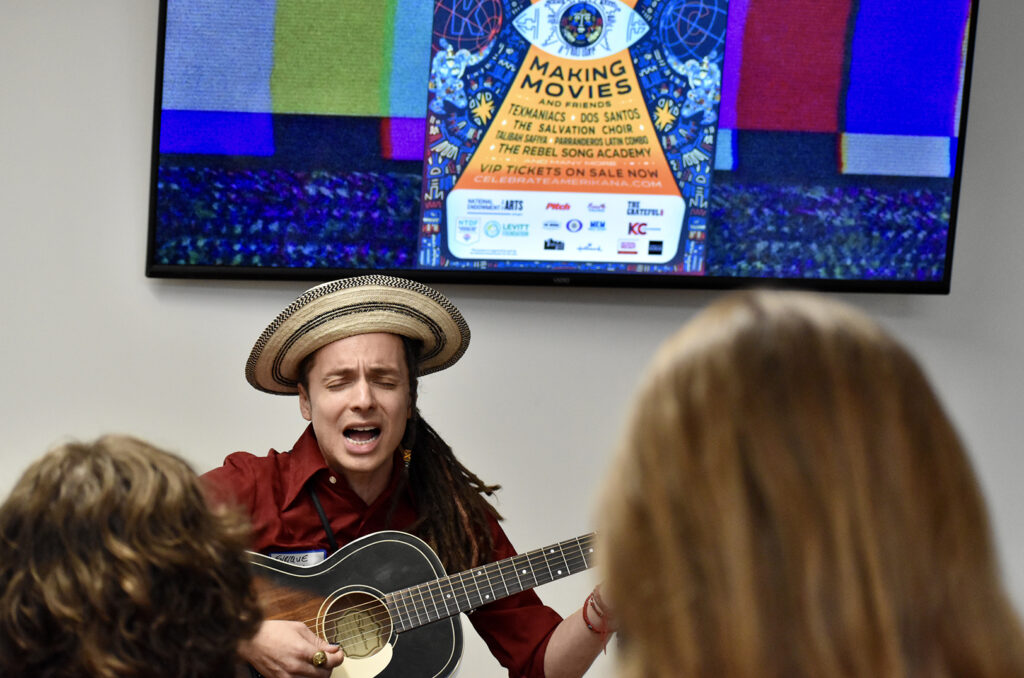
Enrique Chi, Making Movies, performs during an event showcasing Art As Mentorship and the upcoming Ameri’kana music and art festival
It’s a full-circle moment, he said. The nonprofit used to take the kids who attended the early days of its Rebel Song Academy at the Mattie Rhodes Center to the same park.
“This neighborhood is unique to this city,” Chi explained of the Northeast. “There’s 115 languages within a 3-mile radius, which is incredible. And on top of that, they are forced — because of this little pocket — to interact with each other like they’re all sliding at the same slide.”
“Not only do you not see that in other areas of Kansas City — and I’ve had the benefit of touring around — but when I’m in Midwestern cities, I don’t see that anywhere. I don’t see a girl in a hijab, a Vietnamese family, an African refugee, kids playing soccer, and Mexican Americans selling paletas all hanging with each other. And to me, if we have this idea that celebrating American arts and culture should celebrate all of that, this is perfect.”
Plus the neighborhood is just blocks away from the 18th and Vine District, he noted, where jazz music evolved in the US.
“This time — maybe it’s not a genre — but more so a concept of how the arts impact wellness and how music is just part of the fabric of making our communities better,” he added.
Making Movies — which is currently featured in an international campaign by Chevy and Univision to share its platform of music as medicine — will be joined at the festival by Los Texmaniacs, Dos Santos, the Salvation Choir (a band of Congolese and Tanzanian refugees who live in the Northeast), Talibah Safiya, Parranderos Latin Combo, Kate Consentino, and students from the Rebel Song Academy. Art vendors from Sala de Arte also are planned.
Deeply rooted partners
The festival serves as a platform to lift up other organizations in the Northeast that are also doing amazing work through music in the community, Chi shared.
Base Academy of Music — a non-profit that makes starting to learn a musical instrument accessible and affordable for urban youth — and the Harmony Project KC — a music and mentoring program by the Northeast Community Center providing free after school orchestral music education are among those efforts.
“We think that music education just makes a huge difference in people’s lives,” noted Clint Velazquez, who founded Base Academy in 2012. “It gives them a reason and a means to succeed.”
Base Academy — which now serves 175 students — recently received recognition from Grammy-winning artist Ed Sheeran.
View this post on Instagram
“I think for our students to hear Ed Sheeran call out their music school, invite them to show, give us a gift of instruments, what they hear is Ed Sheeran saying he believes they can be great too. They feel inspired.”
“I am so glad there’s a place for these students to take the inspiration and their hard work and showcase to the community what an international super-star like Ed Sheeran could see: these kids are brilliant,” he added of the festival.
Velazquez and Base Academy have been partnering with Chi and Art As Mentorship since it started. He sees the three organizations as a music pipeline in the community, he said.
“I want to see the root system, the ecosystem, the bass, the music flourish to where we are producing more and more musicians,” Velazquez explained. “I’m really excited for there to be a point where kids in this community see, ‘Yes, music can be something that I do and it’s in my area’ and everyone should invest in it.”
Kyla Pitts-Zevin, executive director of the Northeast Community Center, said the center was started 80 years ago by Italian immigrants and the mission remains the same: to serve the community.
“Who those immigrants are looks different than it did 80 years ago,” she continued. “These two organizations are such good partners of ours and we see ourselves as partners in creating music access opportunities. We have 100 kids on our waitlist, we need help. We need to invest in music.”
“In the community, we all have a saying, ‘Music comes in so many different forms and flavors,’” Velazquez added. “But no matter what style it is that we’re learning — no matter what flavor — the benefits for the youth participating, their families, the communities are undisputable. Our hope is that through this music festival, through doing events together, we can make sure that more and more families throughout the community are having access to and participating and really experiencing all the benefits that come from playing music.”
Rebel songs
The feeling of being an outsider is universal, said Chi, but it doesn’t have to be forever — especially when song can become a uniting force.
“When you feel like a part of something bigger than yourself — something that has beauty and empathy — everybody feels better,” he said.
As a kid, Chi’s family moved to the United States from Panama, giving him firsthand experience with the challenges of feeling like an outsider, he said, noting his discovery of music as medicine.
“If you’re an immigrant kid — and language is also overwhelming — then you have these multiple layers of feeling unheard and unseen,” the acclaimed vocalist and guitar player explained. “It’s not just music itself. It’s humans making music together, being vulnerable together, expressing an empathy for each other.”
That’s why, he continued, Art As Mentorship’s 12-week Rebel Song Academy — which itself began more than 10 years ago at the Mattie Rhodes Center — has become so popular and grown to 10 sites, including the Kansas City Kansas School District, the Youth Resiliency Center, and the Kansas City International Academy.
“It’s attractive because these kids go along a journey together, they build bonds, and then they feel seen amongst each other,” he said. “And then at the end, when they perform, they become each other’s biggest fans, each other’s cheerleaders. And that sense of community and being heard is, I think, crucial for teens who are going through any kind of challenge.”
Phyllis Hernandez — who is the owner of Sala de Arte, an art gallery in the Northeast — knows firsthand the difference the Art As Mentorship programs can make in a young person’s life, she shared. Her daughter has been in the program for seven years and found songwriting to be therapeutic.
“It is such a profound song,” she said of her daughter’s piece about immigrant families being separated at the border. “I’m so proud of her for being willing to open up her feelings about something that’s really impactful for our neighborhood of immigrants.”
Her daughter also wrote a song about going through depression when she returned to in-person learning as a sophomore, Hernandez added, which allowed her to get her daughter the help that she needed.
“She said, ‘it’s the only outlet, I have to express my feelings,’” Hernandez recalled. “‘because I’m going through so much at school. I don’t know how to function and I’m not comfortable. They’re not supporting me in a way that I needed. My music is the only thing that allows me to express how I feel.’”




